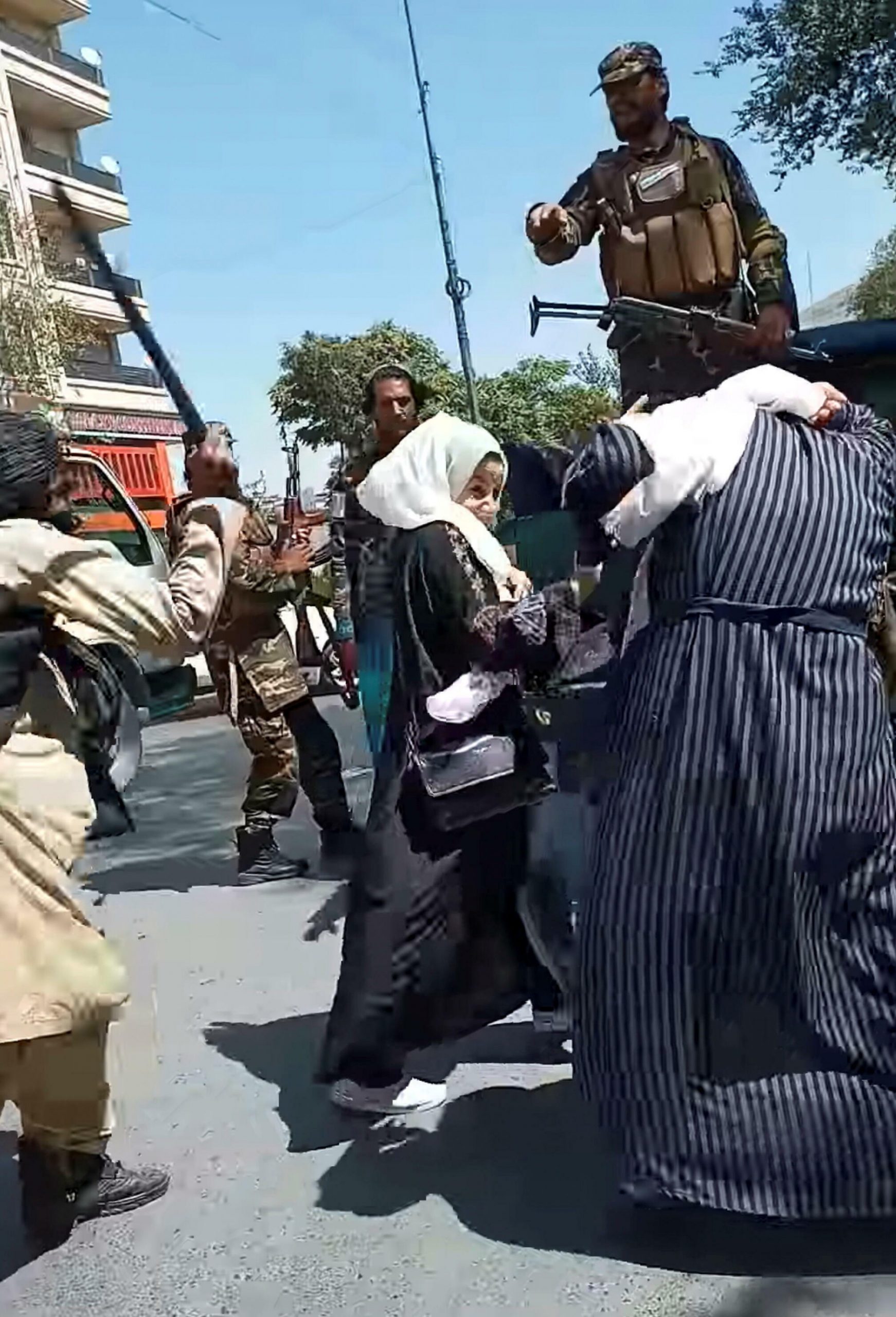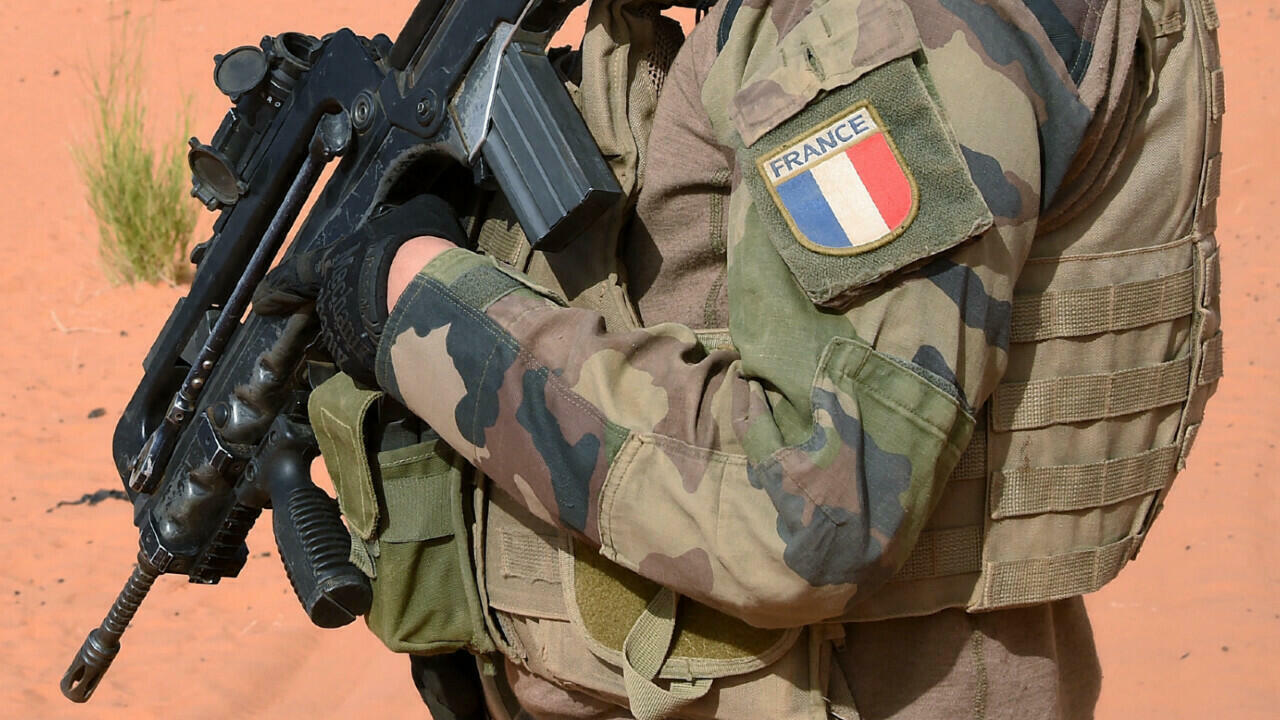Denied access to school due to the Taliban’s failure to reopen secondary schools for girls
One Afghan teenager has taken to the Internet to try to exercise her basic right to an education. But her self-driven online learning mission has not been easy.
The morning Rabia H.* watched her younger brother set off for his first day at school since the Taliban came to power was a difficult one for the Afghan teenager.
School reopened a month after the August 15 Taliban takeover, and the 15-year-old Kabul schoolgirl had already endured the most traumatic period of her young life.
Days after the August 31 US troop pullout, Rabia’s father fled for Pakistan. As a civil society activist from the persecuted Hazara ethnic minority, her father was in extreme danger under the Taliban. The family had hoped “until the last minute” that they would be evacuated from Kabul airport before the US withdrawal deadline, Rabia explained in a phone interview with FRANCE 24 from the Afghan capital.
But when that failed, her father was forced to cross the land border into Pakistan, leaving his wife and five children behind since the journey was too dangerous for women and kids.
Before leaving, her father, a committed women’s rights defender, took Rabia aside for a final, gut-wrenching pep talk. “He told me I’m the eldest, I must help with my brothers and sister, especially my brother who is one year younger than me. He’s in fourth grade and not good at his lessons. I have a big responsibility,” she explained.
Rabia had consistently topped her class for as long as she can remember. Her grades were a source of immense pride for her father, who knew he didn’t have to worry about his eldest daughter’s academic motivation.
The Taliban, however, have a different vision for Rabia and other schoolgirls across Afghanistan.
Before their takeover, the hardline Islamist group spent years assuring US negotiators that the new “Taliban 2.0” era would not be a repeat of their disastrous 1990s reign. But when schools across Afghanistan reopened on September 18 following a shutdown due to Covid-19, secondary schools for girls remained closed, effectively denying girls between the ages of 13 and 18 an education.
For Rabia, the September 18 school reopening was bittersweet. “I was really happy for my brothers because they could go to school. They could meet their friends, teachers and classmates, and also, they could receive education,” she said. “But when the Taliban just reopened schools for boys, we became more hopeless. Before that, we thought that when the schools reopened, they would reopen for boys and girls.”
But falling into despair was not helpful, particularly at such a difficult time for the family. Determined to continue her education, Rabia turned to the Internet, launching an unassisted online learning mission.
Exercising her fundamental right to an education has not been easy. Self-educating without basic infrastructure and scholastic support has proved an uphill struggle for the teenager – and it is giving her harsh lessons on life.
‘Treating women like beasts’
Nearly two months after they took power, the Taliban is on a PR drive to get international recognition and humanitarian assistance, granting visas and interviews to foreign journalists while brutally cracking down on Afghan journalists, according to the UN.
On Tuesday, the Taliban held their first face-to-face talks with a joint EU-US delegation in Doha, Qatar. Confronting a humanitarian crisis in a country where the female workforce is trapped indoors while many male relatives are either underground or unpaid or negotiating migrant routes out of Afghanistan, the EU this week was forced to respond.
At a virtual G20 special summit on Tuesday, the EU pledged a €1 billion ($1.2 billion) aid package for Afghanistan. EU chief Ursula von der Leyen stressed that the funds are meant to offer “direct support” for Afghans and would be channelled to international organisations and not to the interim Taliban government, which Brussels does not recognise. “Our conditions for any engagement with the Afghan authorities are clear, including on human rights,” said von der Leyen in a statement.
We must do all we can to avert a major humanitarian and socio-economic collapse in Afghanistan.
We need to do it fast.
Today at the @G20org I will present an Afghan Support Package worth around €1 billion.
— Ursula von der Leyen (@vonderleyen) October 12, 2021
Rabia is unambiguous about her position on the Taliban and she wants her message heard. “Please don’t recognise them as a government,” she pleads. “The Taliban are treating women like beasts. They want to forget Afghan women. They don’t allow us to live, to go to school, they don’t even want to talk to women. If we protest, they chase us like animals,” she said, referring to a ferocious Taliban crackdown last month on women protesting the restrictions.
Daily routines determined by power outages
Since the Taliban came to power two months ago, Rabia’s life has shrunk to within the walls of the family apartment. The Internet is her only window to the outside world, but even that access is constrained by the daily power cuts.
“In the mornings, we get a little electricity, but in the afternoons, there’s no power. The evenings are better: some nights we have electricity, other nights we don’t,” she explained.
Her daily routine these days is determined by the erratic electricity. She studies alone in the mornings, negotiating Internet cuts. In the afternoons, when the power dies, Rabia’s two teenage neighbours come over and the three girls help each other with their morning coursework. Evenings are for the Internet, when she can study with her brother and work on their English-language skills.
Internet resources, however, are mostly in English and not Persian, her former language of instruction. The teenager, who would have been in the 10th grade this year, now has to manage education sites in English with no help. “It’s very hard, we don’t have any teacher to help us. I’m trying to find someone to help me. I asked people – some said they were busy and refused, some didn’t even respond,” she explained.
Rabia’s family and friends are in various stages of shock, trauma or transition, and it’s hard for them to assist a teen in need when they’re all scrambling to cope.
Her father is struggling with no money or job in Pakistan, and she doesn’t want to bother him. An uncle who worked for the Afghan National Defence Security Forces (ANDSF) is currently in hiding.
He has good reason to fear for his life. There have been increasing reports of atrocities against the predominantly Shiite Hazaras over the past few weeks. In the family’s home province of Daikundi, situated in Afghanistan’s central Hazarajat region, for instance, the Taliban committed a “cold-blooded execution” of 13 Hazara people, including 11 former ANDSF members, Amnesty International revealed last week.
Days after the Taliban swept into Kabul, a group of Taliban fighters arrived at Rabia’s family home and asked for her uncle. “My mother opened the door and told them that all the men have left, they’re not here. Then two days later, I saw a car full of Taliban parked in front of our building. They’re checking our apartment. They’re everywhere in Kabul, it’s very frightening, they even look scary,” said Rabia.
University dreams
Until the schools reopened, Rabia’s mother was the only one who left the apartment, going out to buy the barest essentials since the family is surviving on their dwindling savings.
Before the Taliban takeover, Rabia was focused on a university education abroad. “I was planning to get a scholarship at a really reliable international university. I wanted to be a scientist and I really wanted to go to a good university where I could become the person I want to be,” she said.
That dream receded when the Taliban swept into power, but she’s not about to let it go. Once the head of her class, she is tenaciously preparing for the Scholastic Aptitude Test (SAT) necessary to get into a US university.
She has no idea how or where she can take the test, but she’s diligently following courses on Khan Academy, a free online education website run by an American NGO founded by celebrated US educator Salman (Sal) Khan.
Daily newsletterReceive essential international news every morning
“It’s great, I love it,” said Rabia, her voice, for once, bursting with the excitement of a teenage girl. “It’s a playlist I can follow, and they have materials, videos for all levels.”
While Khan Academy now has platforms in several languages, Persian isn’t one of them, and Rabia admits it’s a slog.
“I asked some friends from the American University of Afghanistan for help,” she explained, referring to the country’s leading university, which moved online following the Taliban takeover. “But they were busy and refused to help. When that happened, I felt really heartbroken. Every day, I feel more alone. My father is gone. I miss him too much … I can’t describe my feelings,” her voice trailed off, breaking with emotion.
But then the preternaturally mature 15-year-old picked herself up once more – as she has been doing over the past two months – and declared, “I tell myself I should stand strong – for my father, my family and the women of Afghanistan. If we don’t speak up, the Taliban will do whatever and we can’t let that happen.”
AFP



